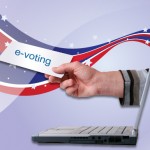 As anyone with experience of online communities will testify, political discussions are generally off limits due to the devastating role they can have on general community harmony. Despite that, the last few years have seen a range of initiatives aiming to use social platforms to greater engage citizens in the political process, whether that’s crowdfunding civic projects or soliciting ideas for improvements to public operations.
As anyone with experience of online communities will testify, political discussions are generally off limits due to the devastating role they can have on general community harmony. Despite that, the last few years have seen a range of initiatives aiming to use social platforms to greater engage citizens in the political process, whether that’s crowdfunding civic projects or soliciting ideas for improvements to public operations.
A new paper has set out to explore the various ways people engage politically online, and how we believe our behaviours influence either the function and operation of government, or indeed the opinions of others.
“A lot of people in the 2008 elections were participating on Facebook and on blogs,” said researcher Lindsay Hoffman (Twitter didn’t play as strong a role then). “… We were interested in which is participatory and which is seen as communication.”
The researchers in particular wanted to explore some of the claims surrounding social media and politics, especially with events such as the Arab Spring being driven by social interactions (at least according to the hype).
The researchers surveyed 1,000 American adults to understand their political behaviours both online and offline. The researchers wanted to build a picture of political activity in both the present and past for each participant to determine how social media may have influenced things. They also wanted to gauge how participants felt their behaviours were influencing government and whether they were an effective means of communicating with others about politics.
The survey focused on 11 distinct political behaviours, such as voting in an election, chatting online about politics, liking a politician on Facebook and so on.
So, has social media led people to be more politically engaged or is it merely encouraging slacktavism? The research suggests that people are generally pretty realistic about the impact their online activities have.
“People are more savvy than we think they are,” Hoffman said. “They viewed every type of behavior mentioned except voting as communication.”
As such, online and offline behaviours were perceived as having very different roles. Engaging politically online was not seen as a replacement for offline political engagement, but rather a new platform for talking about it with others. Users aren’t under the misapprehension that their online activities are influencing government in any way.
Of course, it’s precisely the communication aspect of political discourse that so vexes community managers the world over. I’m afraid the researchers had no answers or insights into how to battle flame wars that typically follow anything remotely political.
Hi Adi,
Those flame wars are nasty. I never mention politics on my feeds. Few have the emotional maturity and detachment to discuss politics without sounding like a hurt 4 year old.
Ryan
Yes, it tends to be something to avoid doesn't it? That and religion. I can see some real value in using social for some of the participatory budgeting style work that's going on, but electioneering is a massive turn-off.
Kinda the same whether it's voters or politicians isn't it? Both groups have already made up their minds, and then use social media to broadcast those opinions to everyone else.
I not only avoided discussing politics for many years, I avoided politics. Government simply had little meaning in my life. I voted in every election, but almost always cast my ballot for the loser. It was a minor annoyance because, like I said, government seemed inconsequential to me. Unfortunately, it wasn't. Well it might not have been during my younger years, but it has grown like the many-headed Hydra in recent decades until it intrudes on every aspect of my life. It even now threatens to bankrupt my natal nation.
Looking around I find that waiting to cast a ballot in an election is far to late to effect outcomes. Decisions are made long before then. Thus, I have begun to engage.
Yes, I've lost "friends" by talking about politics whether it be in person or in social media. Their loss seems of little consequence compared to the outcome if we don't become engaged and turn things around.